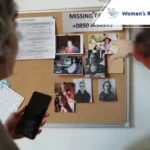In What Ways Can A Lawyer Help Victims of Human Trafficking in California?
Human trafficking is a deeply concerning issue in the United States, with California being a hotspot for such illicit activities. The extent of this crime in California is alarming, prompting a critical examination of the legal avenues available to protect and support victims.
Human trafficking manifests in different forms, including labor and sex trafficking.
- Labor trafficking involves coercing individuals into various work sectors, with common areas like domestic service, agriculture, sweatshops, and restaurant or hospital work. Domestic servitude, a subset of labor trafficking, exploits victims who are compelled to work and live in their employers’ homes, enduring unreasonable hours, substandard pay, and restricted freedom.
- Sex trafficking primarily victimizes women and children, often originating from other countries in South America and Asia. In California, prostitution, sex services, and substance abuse constitute a significant portion of documented cases.
- Child trafficking involves the organized exploitation of children, aged 18 or younger, leaving them susceptible to recruitment into crime networks, illegal employment, physical abuse, sexual abuse and prostitution.
In this blog post, we will explore the specific legal rights and protections designed to assist victims of human trafficking in the state and emphasize the indispensable role that lawyers play in ensuring justice, safety, and recovery.
Suffered injury due to human trafficking?
Understanding the Gravity: How Bad is Human Trafficking in California?
California, with its diverse population and extensive borders, has unfortunately become a major destination for human trafficking – the worst example of modern-day slavery. The state’s proximity to international borders and major cities makes it susceptible to both domestic and transnational crime networks. From forced labor to sexual exploitation, the range of trafficking activities is vast, and the statistics are disheartening.
According to the National Human Trafficking Hotline, 12,696 instances of cases have been identified, involving a total of 24,046 human trafficking victims in California since it started its operations in 2007. Notable results are:
- Sex trafficking has the highest number in their latest statistics in 2021 with 1,023 sex trafficking victims involved.
- Massage parlors, hotels, and bodywork services are the top venues for human and sex trafficking.
- Domestic and farm work are the top two venues for labor trafficking.
- 20% of cases in 2021 involve child sex trafficking.
- 54% are from the immigrant population.
Reports also show that San Diego and San Francisco have the highest number of victims of trafficking per year in California.
Legal Rights and Protections for Victims of Human Trafficking in California
Fortunately, California has implemented robust legal frameworks to address the issue of human trafficking and protect the rights of victims. Victims of human trafficking in California have legal rights that encompass various aspects of their well-being and recovery:
- Assembly Bill 629: California provides a Victim’s Compensation Program under the Assembly Bill 629, which offers compensation equivalent to the loss of income or support experienced by a victim directly due to human trafficking. The compensation is capped at the value of the victim’s labor for a maximum of 40 hours per week.
- Assembly Bill 2498: This legislation grants permission to retain the anonymity of a human trafficking victim, along with the victim’s family, preventing disclosure by a local or state police agency under the California Public Records Act until the conclusion of the trafficking investigation or any subsequent prosecution.
- Senate Bill 970: This legislation modifies the Fair Employment and Housing Act, mandating that hotels and motels offer a minimum of 20 minutes of specified training and education. It focuses on human trafficking awareness to employees who are anticipated to engage with or encounter victims of human trafficking.
- Senate Bill 823: The Senate Bill 823 implemented a distinct petition procedure for individuals who have been arrested, convicted, or adjudicated as a ward of the juvenile court for committing a nonviolent offense while they were victims of human trafficking.
- Senate Bill (SB) 14: This bill aims to categorize the sex trafficking of a minor as a serious offense according to California law. This designation would classify the crime as a strike under the Three Strikes law and gives more serious penalties against human traffickers.
- Penal Code 236.14: If someone was arrested or found guilty of a nonviolent crime while being a victim of human trafficking, like prostitution, they can ask the court to clear their record as a form of relief under Penal Code 236.14. To do this, they need to prove, with strong evidence, that their arrest or conviction happened because they were forced into trafficking and didn’t intend to commit the crime.

The Vital Role of Lawyers: Navigating the Legal Landscape for Justice
Lawyers play a crucial role in supporting victims of human trafficking in California. Their expertise is invaluable in navigating the complex legal system and ensuring that victims receive the justice and protection they deserve. Here are some ways in which lawyers contribute to the cause:
Legal Representation and Advocacy
Personal injury lawyers serve as staunch advocates for trafficking victims, offering vital legal representation that spans the entire spectrum of legal proceedings. They tirelessly champion the rights and interests of victims, ensuring they are heard and respected in court.
Facilitating Referral to Services
Beyond the courtroom, lawyers become essential conduits for human trafficking survivors to access a myriad of support services. They play a pivotal role in connecting survivors with reputable organizations and community partners that offer shelter, counseling, medical assistance, foster care, and other essential resources crucial for their recovery and rehabilitation.
Pursuing Financial Compensation
Lawyers go beyond the pursuit of justice by assisting victims in seeking financial compensation through legal avenues. This entails navigating complex legal frameworks to ensure that victims receive the financial support necessary to rebuild their lives and cover the costs of recovery.
Collaboration with Law Enforcement
The collaboration between lawyers and law enforcement agencies is pivotal in the fight against human trafficking. Lawyers actively work alongside law enforcement, cooperating with human trafficking investigations, sharing insights, and contributing legal expertise to build robust cases against traffickers. This collaboration is instrumental in the prosecution of offenders and the dismantling of these networks.
Policy Advocacy
Lawyers engaged in human trafficking cases often extend their efforts to policy advocacy. They work towards influencing legal reforms and policies that address the root causes of trafficking, enhance victim protection, and contribute to a more comprehensive and effective legal framework.
In essence, the role of human trafficking lawyers extends far beyond the courtroom, encompassing a holistic approach to justice that addresses the immediate legal concerns of victims while actively contributing to the broader fight against human trafficking. Their dedication and expertise are indispensable in bringing about positive change for survivors and in the ongoing battle against this heinous crime.
How You Can Help
In the face of such a pervasive and insidious issue, it is crucial for communities to unite against human trafficking. If you suspect someone is a victim or if you are a victim yourself, don’t hesitate to reach out for help. By taking swift action, you contribute to breaking the chains that bind victims and dismantling the networks that perpetuate these crimes.
- Be Informed: Stay informed about the signs. Awareness is a powerful tool, and recognizing red flags can lead to early intervention.
- Support Anti-Trafficking Organizations: Many organizations in California are dedicated to combating human trafficking. Support them through donations, volunteering, or spreading awareness of their work.
- Educate Others: Share information about human trafficking with your community, service providers, workplace, and social circles. Education is key to preventing and addressing this issue.
- Advocate for Policy Change: Support and advocate for policies that strengthen anti-trafficking efforts. By raising your voice, you contribute to creating a legal environment that is hostile to traffickers.
- Report to Law Enforcement: If you suspect human trafficking in your workplace or area, contact your local police department. However, it is important to make sure that you are safe when doing such reports.
Are you a human trafficking survivor?
FAQs on Human Trafficking
Are there common forms of human trafficking?
Yes, human trafficking can be in the form of debt bondage, child trafficking, peonage, or commercial sexual exploitation.
Who are the victims of human trafficking?
Victims of human trafficking can be across diverse demographics, including men, women, children, adults, foreign nationals, and U.S. citizens alike. The reach of this pervasive crime underscores its potential impact on a broad spectrum of people.
What are the common signs of sex trafficking?
Common signs of sex trafficking include:
- Appearing fearful, anxious, or submissive
- Signs of physical abuse or malnourishment
- Lack control over their identification documents
- Sudden change in attire or behavior
- Unable to speak freely due to monitoring or intimidation
Lawyers are Champions of Justice and Healing
Lawyers emerge as champions of justice and healing against this modern slavery. Their expertise is instrumental in ensuring that victims receive the legal protections and support they need to rebuild their lives. As we confront the harsh reality of human trafficking in California, recognizing the indispensable role of lawyers might help create a safer and more just society.
Women’s Right Group can help you to connect with an experienced legal team and health care providers in California. We offer assistance as you fight for justice and recover compensatory damages for the trauma and suffering you experienced.
If you or someone you know is a survivor of sex trafficking in California, we can help you. You are not alone.
Don’t hesitate to reach out to us for a free and confidential consultation at (844) 240-4967. Our support is available 24/7.
Let us stand united against the heinous crime of human trafficking. Together, we can create a safer, more compassionate California—one where the rights and dignity of every individual are protected.






